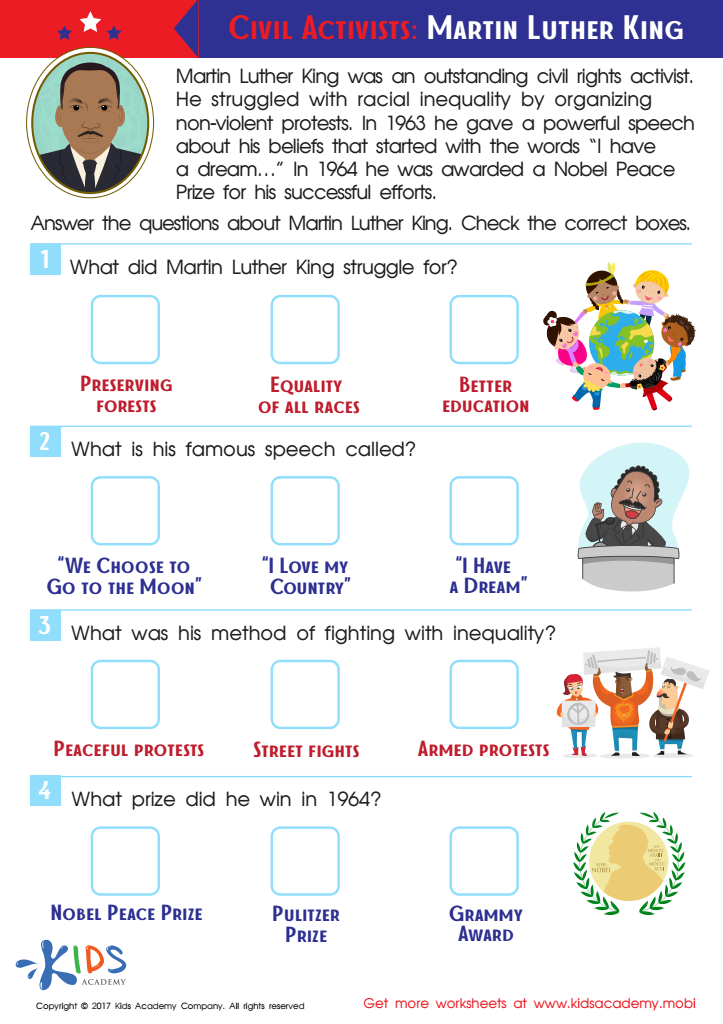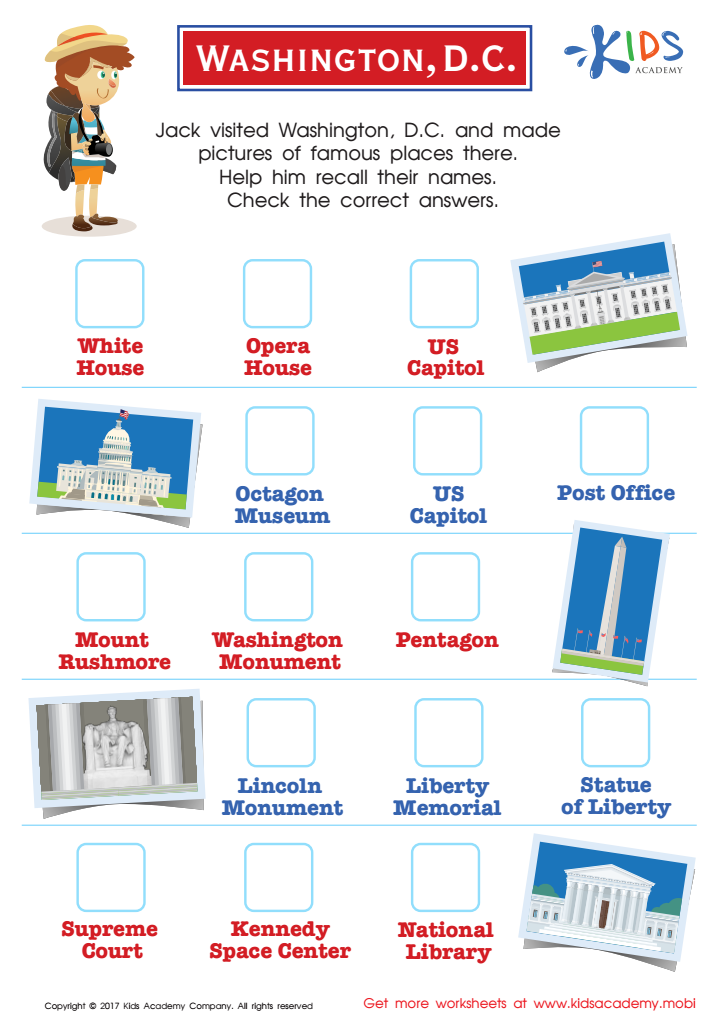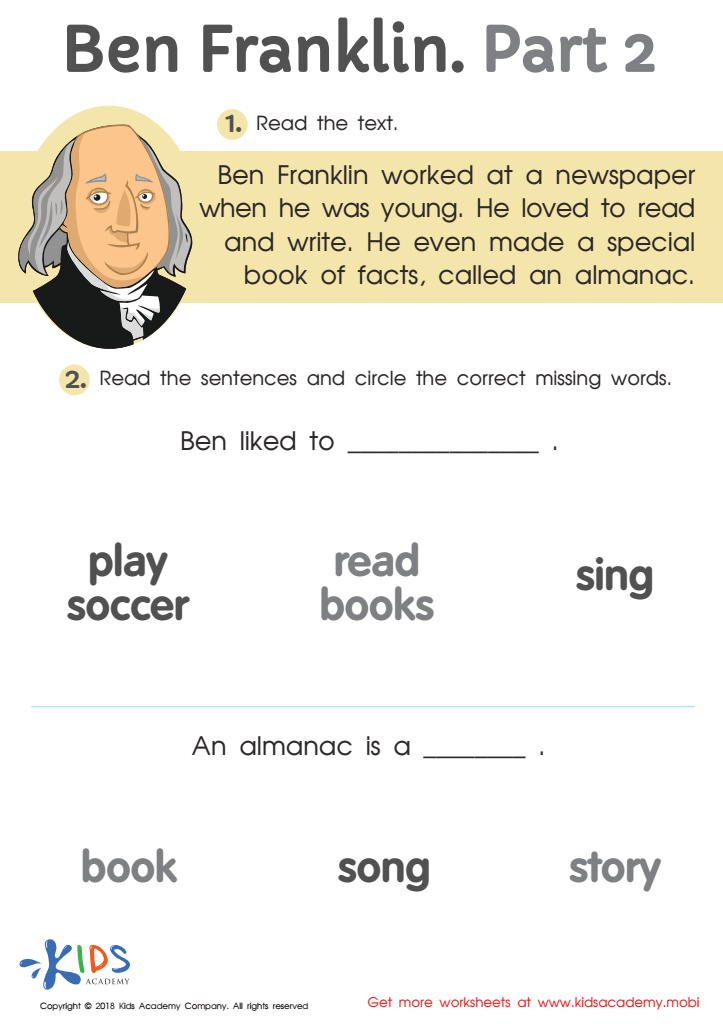Historical Knowledge Normal Governance and Civics Worksheets for Ages 3-9
4 filtered results
-
From - To
Empower young minds with our engaging "Historical Knowledge Normal Governance and Civics Worksheets for Ages 3-9." Designed specifically for early learners, these worksheets provide a fun and educational approach to understanding essential historical events, governance, and civic responsibilities. Each printable worksheet is crafted to develop critical thinking and foundational learning skills, perfectly suited for young children. With vibrant illustrations and interactive activities, your child will explore key historical concepts and learn the basics of good citizenship, enriching their social studies knowledge from an early age. Ignite curiosity and build a strong academic foundation with our expertly designed worksheets.


White House Worksheet


Martin Luther King Worksheet


Washington D.C. Printable Worksheet


Ben Franklin Part 2 Worksheet
Parents and teachers should prioritize teaching Historical Knowledge, Normal Governance, and Civics to children aged 3-9 because these foundational years are crucial for establishing a sense of identity, citizenship, and understanding of the world. Building historical knowledge helps young children grasp the context of their environment and fosters respect for diverse cultures and traditions. Early exposure to stories of people and events of the past encourages curiosity and enhances cognitive development by stimulating critical thinking and analytical skills.
Introducing normal governance concepts helps children understand how their communities function, the roles individuals play, and the importance of laws and responsibilities. This understanding helps to build respect for authority and fosters a sense of security and order.
Civics education at this tender age encourages informed, responsible participation in community and public life. It teaches empathy, collaboration, and problem-solving, fundamental skills for conflict resolution and civic engagement. By learning about their rights and duties, kids develop a sense of justice and fairness.
When children grasp these concepts early, they become informed, responsible citizens who value history, understand governmental principles, and engage constructively in society. For parents and teachers, investing in this education lays the groundwork for a healthier, more cohesive future community.
 Assign to My Students
Assign to My Students









